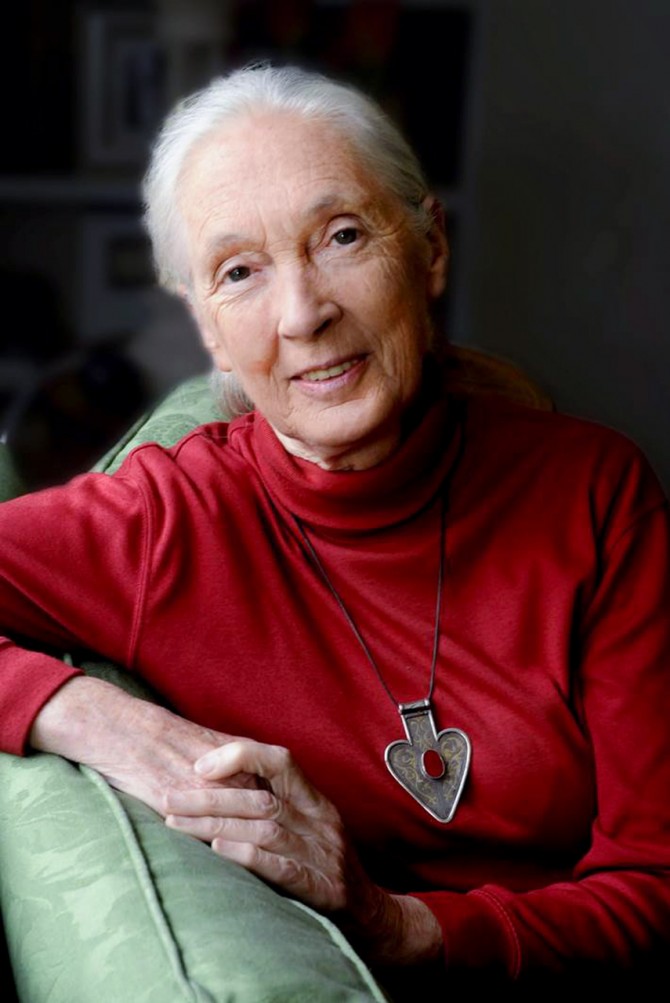A live virtual event focused on preventing future pandemics, as human health is inextricably linked to wildlife, livestock and the environment, will be moderated by New York Times journalist Thomas L. Friedman with a keynote address from noted naturalist Jane Goodall.
The webinar, titled "Emerging Disease, Wildlife Trade and Consumption, and the Need for Robust Global Governance: Exploring Ways to Prevent Pandemics," will take place Feb. 23 from 9 a.m. to noon and is co-hosted by the College of Veterinary Medicine, the World Wildlife Fund and the Cornell Atkinson Center for Sustainability.
This event is free and open to the public. It will feature public health and conservation experts from Cornell and other institutions, including the World Health Organization and the United Nations Environment Program.
"This virtual dialogue will be a robust exploration on how we as humanity can better govern our behavior to reduce the likelihood of future pandemics," said Dr. Steve Osofsky, D.V.M. '89, the Jay Hyman Professor of Wildlife Health & Health Policy and director of the Cornell Wildlife Health Center. "The experts we've assembled will be sharing their ideas on how our global community of nations can hopefully come together to prevent what I fear could otherwise be a cycle of recurring suffering and chaos."
Nik Sekhran, chief conservation officer of the World Wildlife Fund will join Osofsky in opening and welcoming the conference. Friedman, a New York Times columnist and a three-time Pulitzer Prize winner, will moderate.
The morning's first panel will focus on global approaches:
- David Nabarro, the World Health Organization special envoy on COVID-19, will speak on "One Health Global Governance is Essential;"
- Doreen Robinson '92, chief for wildlife at the United Nations' Environment Program, Nairobi, Kenya, will speak on "Short- and Long-Term Governance Considerations for a Global Approach to Wildlife Consumption-Associated Public Health Risks;" and
- Richard Kock, professor of wildlife health and emerging diseases at the Royal Veterinary College, London, and co-chair for the International Union for Conservation of Nature, Species Survival Commission, will speak on: "Could a Global Wildlife Health Authority Have Prevented the COVID-19 Pandemic?"
The morning's second panel will focus on wildlife:
- Theresa Mundita Lim, executive director, ASEAN Centre for Biodiversity, will speak on: "A Sustainable Future for Wildlife and Humanity Depends on a New Approach;" and
- John Scanlon, chair of the Global Initiative to End Wildlife Crime, will discuss: "New Ways Forward for Addressing Wildlife Trafficking, Trade and Markets."
The event continues a critical discussion, supported by the Cornell Atkinson Advancing One Health Working Group, that has highlighted the need to put more emphasis on cross-sectoral collaboration and prevention, in addition to obvious emergency response needs.
"As early signs of how the deadly coronavirus was spreading in China last year, it was not a surprise to those of us who have studied zoonotic diseases," said event co-leader David Lodge, the Francis J. DiSalvo Director of Cornell Atkinson. "Cornell and the World Wildlife Fund are uniquely positioned to bring preeminent researchers from key fields - including veterinary medicine, wildlife management, public health, food and public policy - to this urgent discussion on steps to prevent future pandemics."







